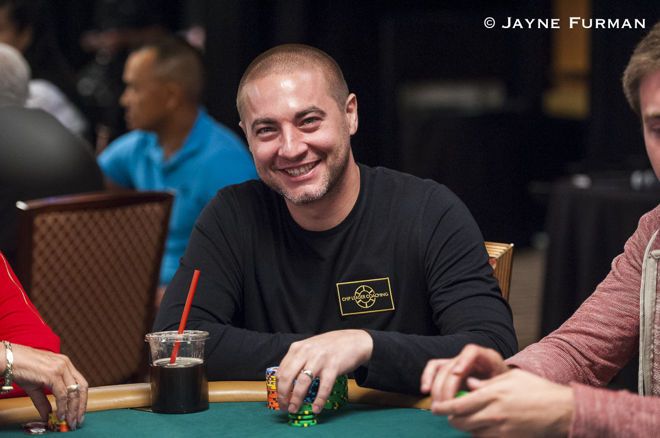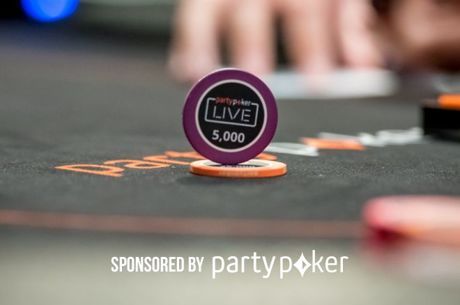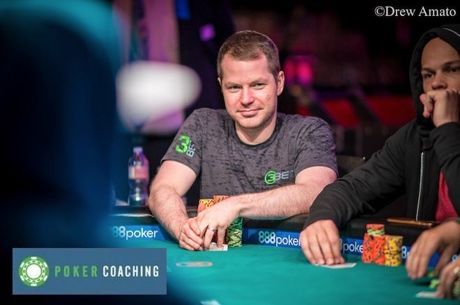Teachable Moments From Twitch: Chance Kornuth on Preserving Tournament Equity

In another edition of this new "Teachable Moments From Twitch" series, I wanted to share a quick hand from poker pro Chance Kornuth he recently played on his stream at www.twitch.tv/chancekornuth.
This hand comes from the partypoker POWERFEST series, taking place a week ago during the $2 million guaranteed Championship Event (#108-SHR) with a $10,300 buy-in. What the hand lacks in action, it makes up for in discussion of a rarely invoked concept that Kornuth does a great job of explaining.
The hand begins with seven players left at the final table. The action folds to Kornuth who is second to act with 8?8? and a stack of 60 big blinds. At the time Kornuth was second in chips. The chip leader, a very aggressive player with a 140 BB stack, was on the button, while the table's short stack with only 4 BB left was in the small blind.
Due to the ICM pressure exerted on him by the presence of the short stack, Kornuth mentions that he does not expect to get played back at very often because the big stack knows he is opening such a tight range in this spot.
Kornuth makes a raise of just over 2x, then is surprised to see a three-bet from the player sitting in the cutoff with a 30 BB stack. He immediately recognizes this as a pretty easy fold, then seems to suggest that in such a situation you should even consider folding slightly stronger plus-EV hands in order to preserve your tournament equity.
"You have to be really careful gambling with the people on your left, especially the really good players, in a marginal spot," says Kornuth. "If I shove and lose there, I am just going to get caged by the two chip leaders as opposed to being in second very comfortably. Even if I did think he was light and it was slightly plus-EV, shoving there would be a massive tournament equity punt."
The way Kornuth describes tournament equity is a little different from what I understand equity to be. Instead of just looking at how much he stands to win in this pot, Kornuth takes into account his position and relative stack size in order to determine the future value of his stack and its utility going forward.
I suspect that many players could get away from pocket eights here, but Kornuth went on to explain that this villain is a very good player and that he didn't expect him to have hands like QQ or AK in his three-betting range due to the ICM pressure he is facing.
That means he expects his opponent's three-betting range to consist of KK+ for value and maybe a small number of bluffs. It also means that even hands as strong as 99-JJ aren't in great shape against such a range.
I'm not sure, but maybe Kornuth can find a fold with hands this strong. In my experience, most players can't. Especially here where they have twice the number of chips as the villain at a final table with a 4-big blind stack at the table as well. (Kornuth went on to take third in the event for a $219,440 score.)
For those of us who play smaller stakes, so many hands seem to play themselves. If we have a hand that is plus-EV, we go with it and let the chips fall where they may. A lesson we can learn from Kornuth is to slow down and consider the future situations we will be faced with in addition to the one currently at hand.
In this Series
- 1 Teachable Moments From Twitch: Capping Ranges With Small Bet Sizing
- 2 Teachable Moments From Twitch: Chance Kornuth on Preserving Tournament Equity
- 3 Teachable Moments From Twitch: Ryan Laplante on Reliable HUD Stats
- 4 Teachable Moments From Twitch: Leading Into the Preflop Raiser
- 5 Teachable Moments From Twitch: Triple-Barrel Bluffing With 'bencb789'









